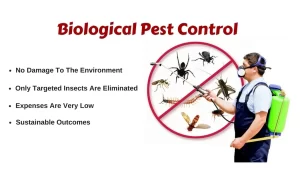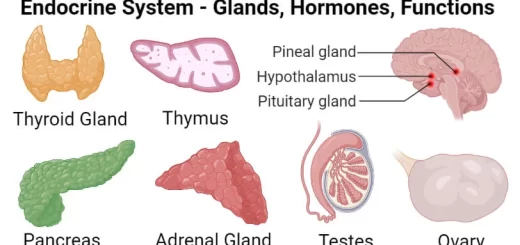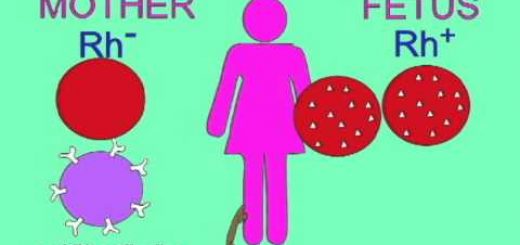Biological Pest Control uses, advantages and disadvantages
Controlling the pests with their natural enemies, including parasites, predators, diseases, and competing organisms, is called biological control, It is an alternative to using broad-spectrum pesticides, that kill off the beneficial insects as well as the pest organisms, It is an environmental friendly method and it does not introduce the pollutants into the environment.
Biological Pest Control
Biological control minimizes environmental, legal, and public safety concerns, Integrated pest control uses bio-agents in combination with other measures, The biological control agents are called the bio-agents, leave behind no long-lasting residues that remain in the environment, They don’t leach into the groundwater or create the resistant strains of the insects.
It is highly specific to one pest, and it can either be less or more expensive than the pesticides, You can incur significant expenses studying, choosing, testing, and breeding the bio-agent, A long-term solution if equilibrium is established, Biological Pest Control is inexpensive over the long term & it can be used in a glasshouse.
The pests do not become resistant, and there is no environmental contamination, If the biological control organism is introduced, It does not have to be re-introduced, The chemical pesticides must be used repeatedly, So, more expenses and time consumed, The biological control limits the subsequent use of the pesticides.
It is an alternative to pesticides and poisons, When you remove the organism from the food web, It can disrupt all the others around it, so, you have to be very careful, biological control is a better, safer method of control than using pesticides.
Biological pest control is the use of natural predators as agents to attack the weeds, The biological control agents are the insects, but fungi, bacteria, and nematodes are sometimes used, Some fungi attack the insects and kill them, The fungal spore penetrates the insect & grows throughout it, It takes about a week for the insect to die, Fungi are cost-effective unless a high application rate is needed for heavy insect infestations.
Biological Control advantages
Biological Pest control is a very specific strategy, whatever predator is introduced will only control the population of the pest they are meant to target, making it a green alternative to the chemical or mechanical control methods, whereas the weed-killing chemicals can destroy fruit-bearing plants, The biological control allows the fruit to be left uninterrupted while the weeds are destroyed.
Biological pest control does not have adverse effects on human health or the environment, It is self-sustaining, and it can be cost-effective When the cost of testing and introducing control agents has been met, the ongoing costs are small, There is no need to find & identify every individual weed to be treated, An effective agent will search out all suitable plants of the weed.
Development of the host resistance is not a problem, biological pest control is compatible with most other control techniques (except sometimes the use of insecticides and herbicides), The biological control reduces the competitiveness and reproductive capacity of the weed, making it more manageable.
The biological control method of pest management does not use chemicals, It uses many organisms that are either the predators or the parasites to the pest, The pest is the organism that causes damage to people and their crops, biological control should be implemented whenever possible because it does not pollute the environment.
The great benefit of this method is its selectivity, There is a restricted danger of damage to non-target plant species, and biological control does not create new problems, like conventional pesticides, Selectivity is the most important factor regarding the balance of the agricultural ecosystems because great damage to non-target species can lead to the restriction of natural enemies’ populations.
The biological control agent (BCA) can be deployed in the agricultural ecosystem, so as not to damage non-target pests, depending on appropriate host specificity tests which determine the potential host range.
The ability to self-perpetuate is an interesting advantage of the biological control method, BCAs will increase in number and spread Because BCAs are self-propagating and dispersing, pest control is self-perpetuating too, This is quite important regarding the economic feasibility of the biological control.
Another benefit of the biological control method is the environmental safety of BCAs, The pest is unable (or very slow) to develop the resistance, so the biological control can be cost-effective, Its effectiveness is based on self-perpetuation and self-propagation, So, if we establish a control agent in a specific area, it will reduce the target pest in an acceptable threshold for quite long time.
The financial benefit of biological control is greatest in the cases when there is no other option, biological control is very effective in inaccessible areas, The cost efficiency of this method is that the yield benefit of biological control is less than the yield achieved by the agrochemicals, but the primary cost of BCA is lower than the chemical pesticides.
Biological control is an attractive alternative to agrochemicals, the use of environmentally friendly alternatives to chemical pesticides is required in agriculture, No chemicals are used, so, there’s less pollution, disruption of the food chain, and risk to the people eating the food that has been sprayed.
BCAs are more susceptible to environmental conditions than chemical control, This consequently causes fluctuations in the pest populations, It reflects on the product quality, the crop yield, and of course, the price of the product on the market, if the annual harvest of the crop is not stable, it will affect the grower’s income stability.
The biological control method is environmentally safe, This method offers less risk of the residues in the food chain, biological control is most suited for exotic pests that are not closely related to indigenous beneficial species, Biological control is less expensive than chemical control.
Disadvantages of Biological Control
Biological control is a slow process, It takes a lot of time and patience for the biological agents to work their magic on the pest population, whereas the other methods like pesticides work and offer immediate results, The upside to this is the long-term effect biological control provides.
It can be fickle, you can’t control whatever natural enemy, you set loose in an ecosystem, While it is supposed to manage one pest, your predator will switch to a different target, they may decide to eat your crops instead of the insects infesting them, but when you introduce a new species to the environment, there is a risk of disrupting the natural food chain.
Although it is cheap in the long run, the process of setting up the biological control system is a costly endeavor, A lot of planning money goes into developing a successful system, The predator you introduce may not eat the pest, but it could eat useful species, The predators’ population may increase and get out of control, The predator may not stay in the area where it is needed.
Biological control has slow action, It lacks the immediacy of chemical control, So, During the period required until the natural enemies control the pest population, the pests may be present in the intolerable populations, The agent may become a pest itself, Frequent input is needed to maintain population balance and it needs to be large scale.
The pesticides can not be used because they will damage the biological control system, The need for a difficult transition period from insecticides to biological control may make the introduction of biological control unattractive for a grower, It is expensive to research and It needs a high level of skills and initial set up costs.
The biological control is unpredictable, Its unpredictability lies mostly in the fact that the natural enemies are dependent on the environmental conditions, The deployment of BCAs in a new environment requires a lot of research to achieve the desirable results because of climatic constraints.
It is difficult & sometimes expensive to develop biological control in the field because it requires highly qualified scientific staff, There is relatively less investment in biological control research in comparison with chemical pesticides, The variation and changes in behaviour of natural enemies that can be caused by rearing conditions are manifold, This variation leads to inconsistent results in the biological control.
The potential agents are expensive to test for specificity, Host specificity testing may take many years to complete because of the need for thoroughness, The biological control operates over large areas, so, it can not be limited to the individual properties or paddock, It does not eradicate the pest organism completely, because if the control agent reduces the pest population too far, it destroys its food source.
You can subscribe to Science Online on YouTube from this link: Science Online
You can download Science Online application on Google Play from this link: Science Online Apps on Google Play
The type of living organisms according to their feeding
Food relationships among living organisms (Predation, Symbiosis & Saprophytism)
Modern classification of living organisms, Kingdom (Monera and Protista)
Energy paths through Living organisms in food chains & food webs




